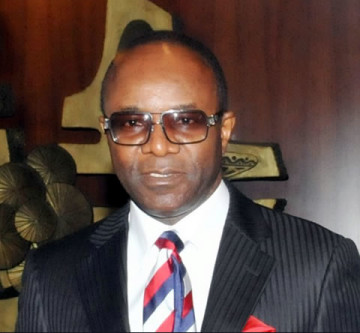The Federal Government, Monday, threatened to cut gas supply to Ghana’s power plants 100 million Ghanaian cedi indebtedness.
According to a former Chief Executive Officer of the Volta River Authority Dr. Charles Wireku-Brobbey, Nigeria’s decision to cut gas supply to Ghana’s Aboadze thermal plant was occasioned by the failure of the government to settle its indebtedness to the Nigerian gas authorities and this might worsen power supply in Ghana.
Wireku-Brobbey told a Ghanaian news medium that contrary to expectation, the constant power supply in the country is not dependent on the incoming power barges from Turkey.
He said, “The problem for us not the arrival or non-arrival of the power barges. As we speak the government owes Nigeria over GHC100 million, which we are yet to settle, and that is the problem that should concern us.”
Currently, Ghana receives in excess of 140 million standard cubic feet per day of gas from Nigeria. The supply, although not enough, has greatly enhanced power supply in the country over the last few weeks.
Ghana had in November 2014, accused Nigeria of breaching the agreement to supply gas to it, a situation that has worsened the country’s power supply.
Mr. Edward Bawa, Communications Consultant at Ghana’s Energy Ministry had told a Ghanaian news medium that since the inception of the West African Gas Pipeline Project, Nigeria, which is responsible for supplying Ghana, Togo and Benin with natural gas, has proven to be unreliable.
“Since gas started flowing through the West African Gas Pipeline, Nigeria has demonstrated that they cannot be relied upon to give us gas,” he maintained.
According to him, Nigeria was supposed to send 123 million cubic feet of gas to Ghana but was only able to supply around 49 cubic feet, saying the quantity is “woefully inadequate to enable us to power our generating plants.”
Bawa called for an increase in the sanctions to be meted out to Nigeria for breaching the contractual agreement, noting that only this will serve to deter Nigeria from continually breaching the terms of the contract.
He said, “The penalty, for the entire contractual period, if Nigeria fails to meet the supply requirement is $20 million dollars. That is peanut to them so they do not have incentive to supply Ghana the required quantities of gas, especially when they have other thermal plants that are asking for gas. Simply they are just not respecting the contract.”
To this end, Ghana’s load shedding exercise took a worsening turn as the Ghana Grid Company, (GRIDCO) says it will have to reduce power supply to consumers further if Nigeria’s gas supply to the country continues to dwindle.
The country had in the first few months of 2014 received a compensation of $10 million, about N1.6 billion, from Nigeria over the failure of the latter to meet supply of gas agreement between the two countries.














